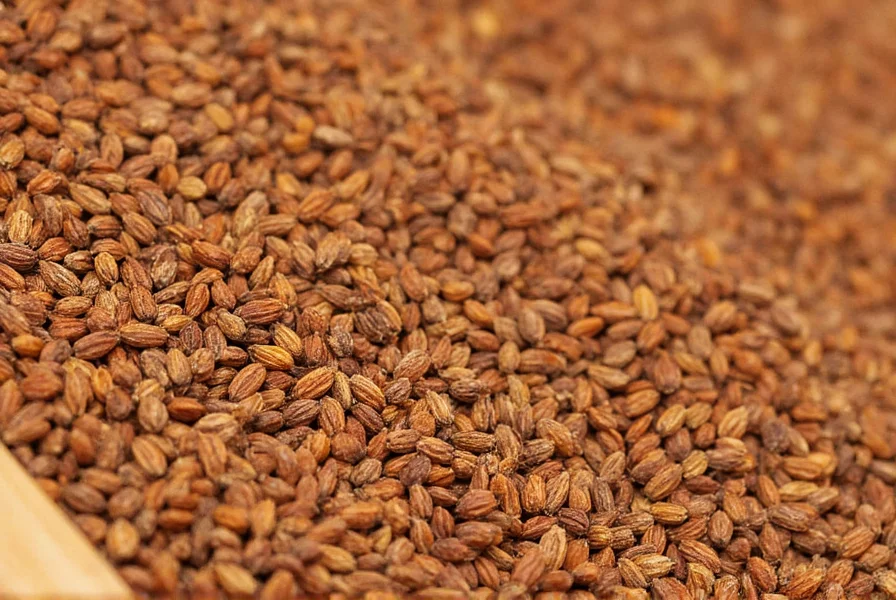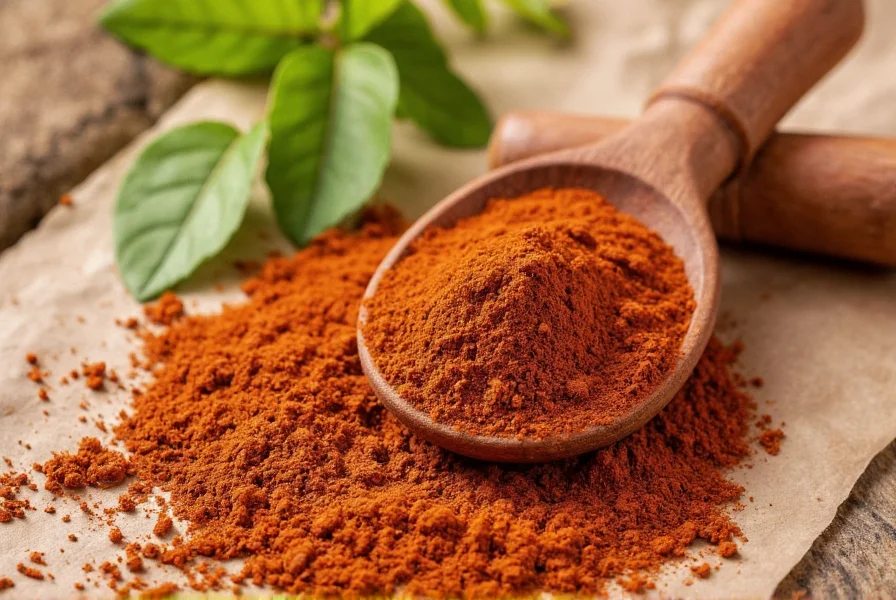Cumin (Cuminum cyminum), one of the world's oldest and most widely used spices, has been valued for both culinary and medicinal purposes across various cultures for thousands of years. Modern scientific research continues to validate many of the traditional health claims associated with this versatile spice, revealing a range of evidence-based benefits that extend far beyond its distinctive flavor profile.
Nutritional Profile of Cumin Seeds
Understanding cumin's health benefits begins with examining its impressive nutritional composition. Just one teaspoon (2.1 grams) of ground cumin contains:
| Nutrient | Amount per Teaspoon | % Daily Value |
|---|---|---|
| Calories | 8 | 0% |
| Iron | 1.4 mg | 8% |
| Manganese | 0.2 mg | 8% |
| Magnesium | 11 mg | 3% |
| Calcium | 12 mg | 1% |
What makes cumin particularly valuable is its rich concentration of bioactive compounds, including cuminaldehyde (responsible for its distinctive aroma), terpenes, phenols, flavonoids, and alkaloids. These compounds work synergistically to produce the spice's therapeutic effects.
Scientifically Supported Health Benefits of Cumin
Digestive Health Enhancement
One of cumin's most well-documented benefits relates to digestive health. Research published in the Journal of Ethnopharmacology demonstrates that cumin stimulates the production of digestive enzymes from the pancreas, enhancing the breakdown and absorption of nutrients. The spice also shows promise in reducing symptoms of irritable bowel syndrome (IBS) and may help alleviate bloating and gas due to its carminative properties.
A clinical trial involving 58 participants with IBS found that those who consumed cumin extract experienced significant reductions in abdominal pain and bloating compared to the placebo group. This makes cumin spice for digestion a valuable natural remedy supported by emerging scientific evidence.
Potent Antioxidant Properties
Cumin ranks exceptionally high on the Oxygen Radical Absorbance Capacity (ORAC) scale, which measures a substance's antioxidant capacity. The spice contains multiple antioxidants including lutein, zeaxanthin, and various polyphenols that combat oxidative stress in the body.
Studies have shown that regular consumption of cumin can increase levels of antioxidant enzymes like superoxide dismutase and glutathione peroxidase in the body. This cumin spice antioxidant properties contribute to cellular protection against damage that can lead to chronic diseases and accelerated aging.

Blood Sugar Regulation
Research suggests cumin may help maintain healthy blood glucose levels, making it potentially beneficial for people with prediabetes or type 2 diabetes. A study in the Journal of Medicinal Food found that participants who consumed 75mg of cumin extract daily for eight weeks showed significant improvements in fasting blood sugar and HbA1c levels compared to the control group.
The mechanism appears to involve enhanced insulin sensitivity and protection of pancreatic beta cells. While cumin shouldn't replace diabetes medication, incorporating cumin for blood sugar regulation as part of a comprehensive approach shows promise.
Anti-inflammatory Effects
Chronic inflammation underlies many modern diseases, and cumin demonstrates notable anti-inflammatory properties. The spice inhibits the production of inflammatory cytokines and enzymes like cyclooxygenase-2 (COX-2).
In animal studies, cumin extract reduced inflammation markers by up to 50% in models of acute inflammation. While human studies are still limited, the anti-inflammatory effects of cumin suggest potential benefits for conditions like arthritis and other inflammatory disorders.
Iron Content and Anemia Prevention
With 1.4mg of iron per teaspoon (8% of daily value), cumin represents a valuable dietary source of this essential mineral, particularly for populations at risk of iron deficiency. What makes cumin especially beneficial is that its iron comes with vitamin C and other compounds that enhance absorption.
A study published in the Indian Journal of Pharmacology found that cumin supplementation significantly improved hemoglobin levels in iron-deficient women. This cumin seed nutritional benefit makes it particularly valuable in vegetarian and vegan diets where iron absorption can be challenging.
How to Maximize Cumin's Health Benefits
To get the most from cumin's health-promoting properties, consider these evidence-based usage tips:
- Dry roast before use: Lightly toasting cumin seeds enhances the bioavailability of its active compounds
- Combine with healthy fats: The fat-soluble compounds in cumin are better absorbed when consumed with oils or avocado
- Pair with vitamin C-rich foods: Enhances iron absorption from the spice
- Use regularly: Consistent consumption yields better results than occasional use
- Consider black cumin: Nigella sativa (black cumin) offers additional benefits though it's botanically distinct
Potential Side Effects and Considerations
While cumin is generally safe when consumed in culinary amounts, some considerations exist:
- Excessive consumption (more than 3-5 grams daily) may cause heartburn or nausea in sensitive individuals
- People with bleeding disorders should consult a healthcare provider as cumin may slow blood clotting
- Pregnant women should avoid medicinal amounts as high doses might stimulate menstruation
- Cumin may lower blood sugar, so those on diabetes medication should monitor levels closely
- Rare cases of allergic reactions have been reported, particularly among spice handlers
Cumin Compared to Other Spices
When evaluating cumin vs other spices health benefits, cumin holds its own against more celebrated spices:
- Compared to turmeric: While turmeric has stronger anti-inflammatory properties due to curcumin, cumin offers superior iron content and digestive benefits
- Compared to ginger: Both support digestion, but cumin shows stronger evidence for blood sugar regulation
- Compared to cinnamon: Cinnamon may have stronger blood sugar effects, but cumin provides broader nutritional benefits
The most healthful approach is incorporating a variety of spices, as they work synergistically to provide comprehensive health benefits.
Practical Applications in Daily Life
Incorporating cumin for health doesn't require drastic changes to your diet. Simple ways to include more cumin:
- Add to roasted vegetables (especially carrots, sweet potatoes, and cauliflower)
- Include in homemade salad dressings and marinades
- Stir into soups, stews, and bean dishes
- Mix with yogurt for a digestive-friendly dip
- Brew cumin tea by steeping 1 teaspoon of seeds in hot water for 10 minutes
For those interested in how to use cumin for health beyond cooking, traditional preparations include cumin water ( soak 1 teaspoon of seeds overnight and drink the strained liquid in the morning) which may support digestion and metabolism.

Conclusion: Cumin's Place in a Healthy Diet
Cumin represents a powerful example of how traditional culinary spices offer significant health benefits supported by modern science. The research on cumin spice benefits demonstrates its potential to support digestive health, provide antioxidant protection, help regulate blood sugar, and reduce inflammation.
While cumin shouldn't be viewed as a cure-all or replacement for medical treatment, incorporating this flavorful spice into a balanced diet represents a simple, enjoyable way to enhance nutritional intake and potentially improve various aspects of health. As with any dietary change, consistency matters more than quantity—regular, moderate consumption of cumin as part of diverse, whole-food eating patterns yields the most sustainable benefits.
Frequently Asked Questions
What are the top scientifically proven benefits of cumin spice?
Research shows cumin offers several evidence-based benefits including improved digestion through enhanced enzyme production, potent antioxidant properties that combat oxidative stress, blood sugar regulation that may help with prediabetes, anti-inflammatory effects that reduce inflammatory markers, and significant iron content that supports hemoglobin production and may help prevent anemia.
How much cumin should I consume daily for health benefits?
For culinary use, 1-2 teaspoons (3-6 grams) of cumin daily provides health benefits without risk of side effects. Studies showing therapeutic effects typically used 300-600mg of concentrated cumin extract, equivalent to about 1-2 teaspoons of ground cumin. Consuming more than 5 grams daily may cause digestive discomfort in some people.
Can cumin help with weight loss?
Some research suggests cumin may support weight management. A study in the Annals of Nutrition and Metabolism found that women who consumed 3 grams of cumin powder daily for 8 weeks lost significantly more weight than the control group. Cumin may enhance fat metabolism and improve insulin sensitivity, but it should be combined with a healthy diet and exercise for best results.
Are there any risks associated with consuming cumin?
Cumin is generally safe when consumed in normal food amounts. However, excessive consumption (more than 5 grams daily) may cause heartburn or nausea. People with bleeding disorders should use caution as cumin may slow blood clotting. Those on diabetes medication should monitor blood sugar as cumin may enhance medication effects. Pregnant women should avoid medicinal amounts as high doses might stimulate menstruation.
What's the difference between regular cumin and black cumin?
Regular cumin (Cuminum cyminum) and black cumin (Nigella sativa) are different plants with distinct properties. Black cumin seeds are smaller, black, and contain thymoquinone as their primary active compound, while regular cumin contains cuminaldehyde. Black cumin is often used for respiratory health and immune support, while regular cumin is better studied for digestive and metabolic benefits. Both offer health advantages but shouldn't be used interchangeably in recipes.











 浙公网安备
33010002000092号
浙公网安备
33010002000092号 浙B2-20120091-4
浙B2-20120091-4